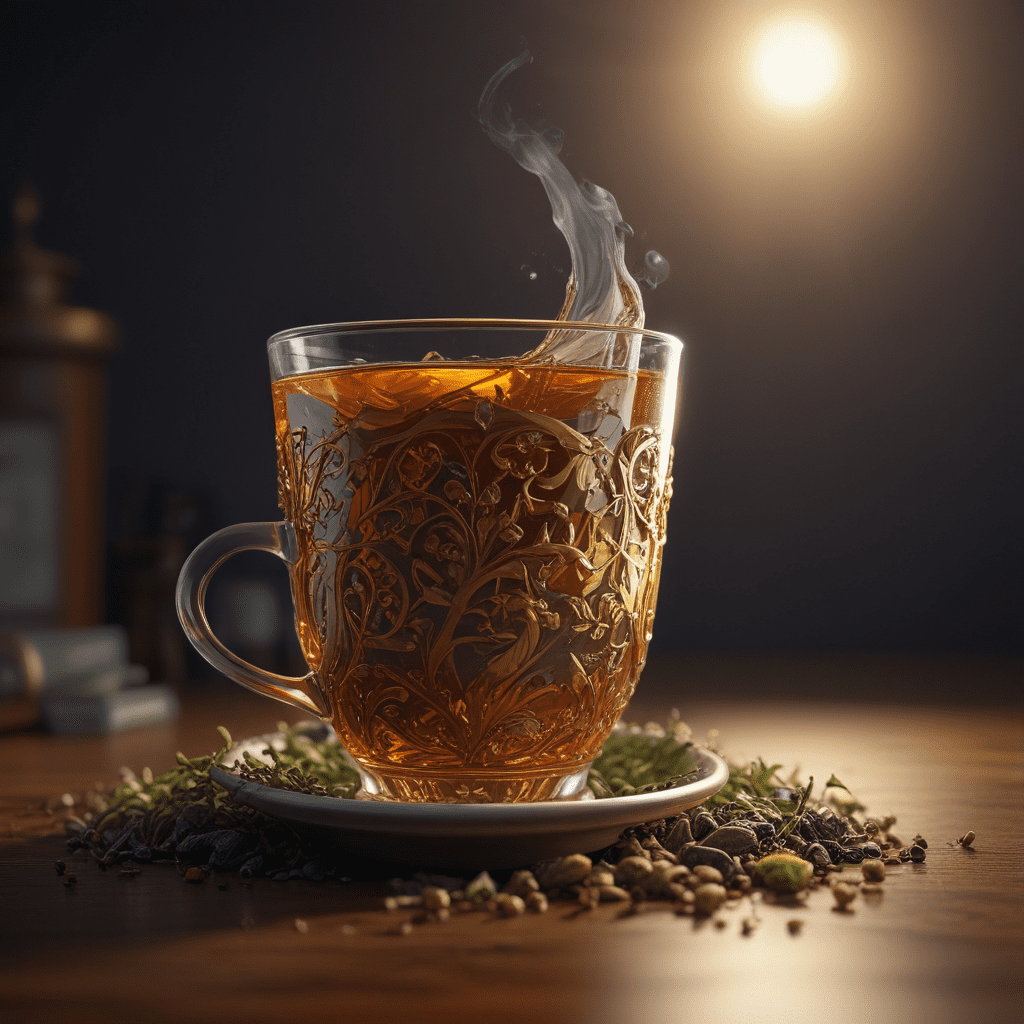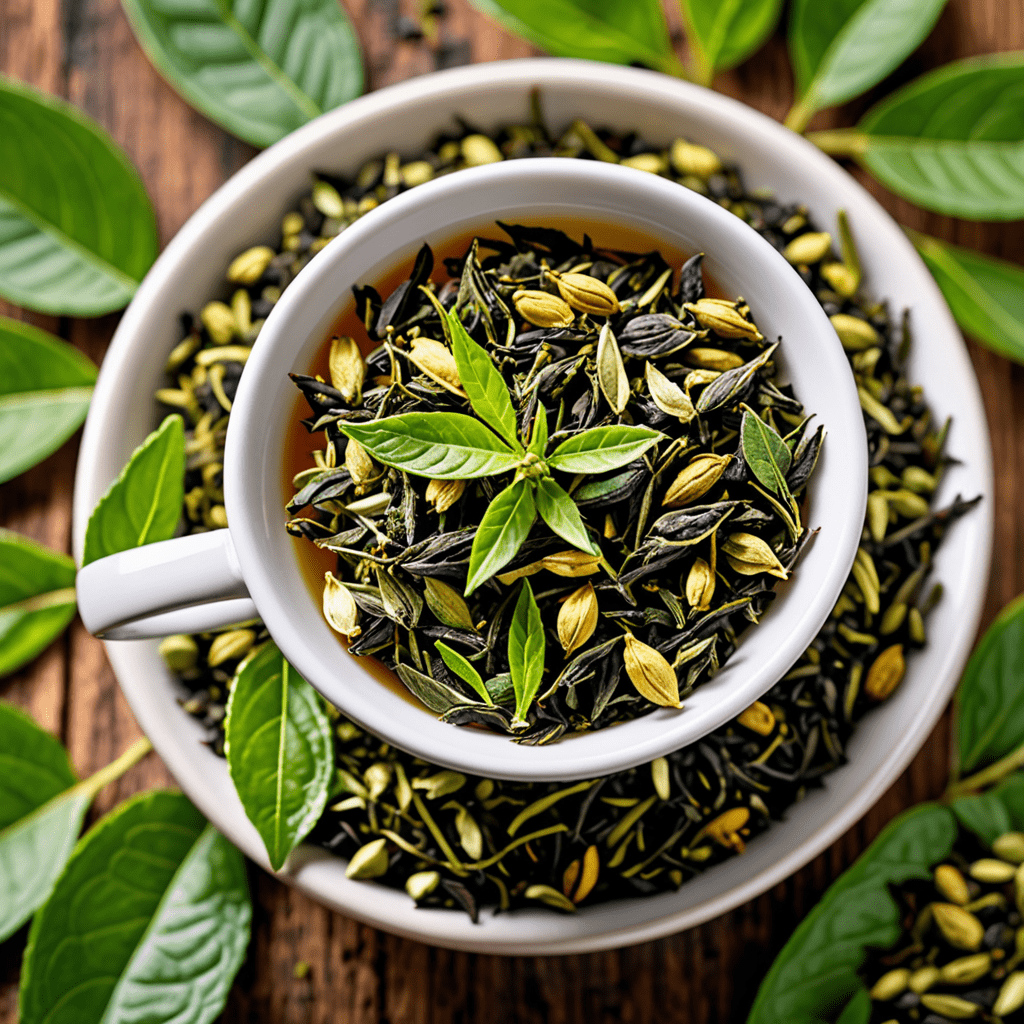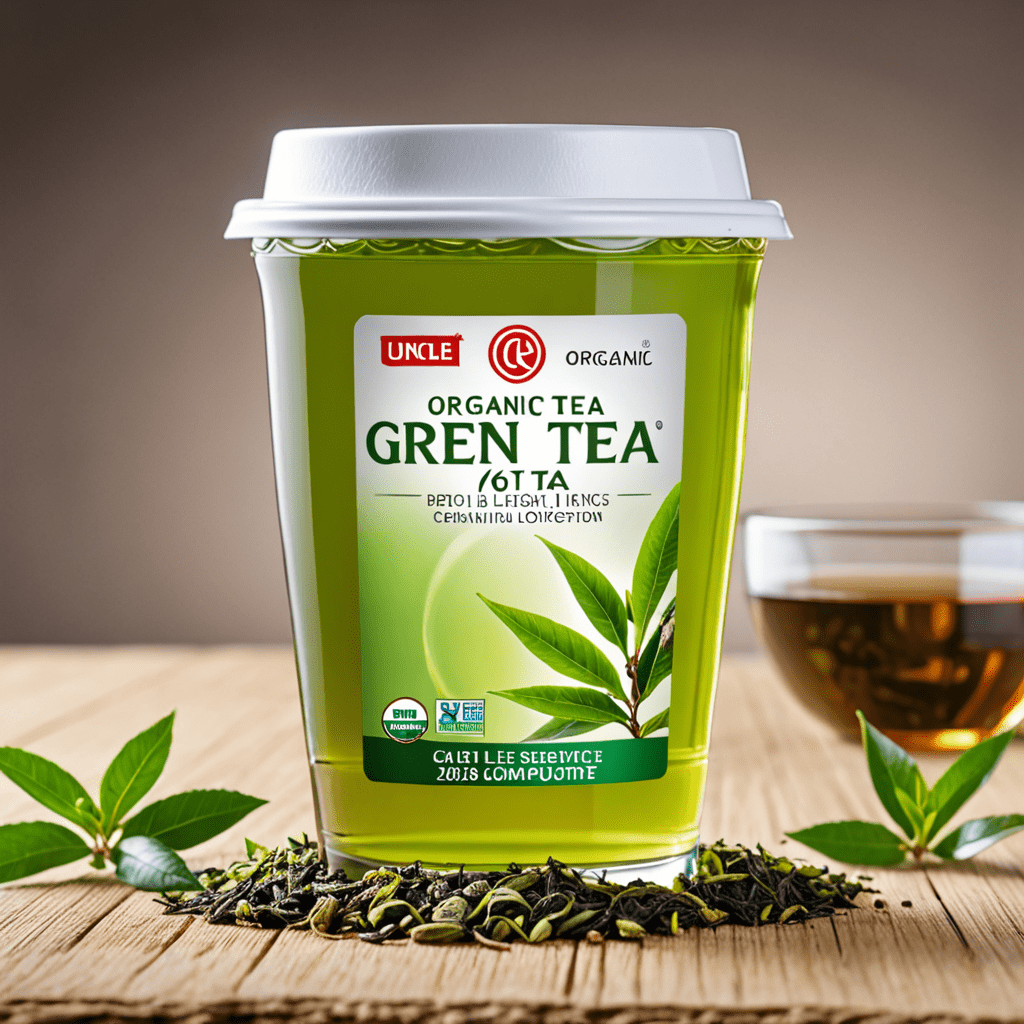Tea and Well-Being: Nurturing Body and Soul with Indian Teas
Introduction
For centuries, tea has been an integral part of Indian culture, deeply woven into the fabric of daily life and deeply revered for its numerous health benefits. From the verdant hills of Darjeeling to the lush tea gardens of Assam, India boasts a diverse range of teas, each with its unique flavor, aroma, and therapeutic properties.
Today, as the world grapples with stress, anxiety, and a growing desire for holistic well-being, Indian teas are regaining their rightful place as a potent tool for nurturing both body and soul. This article delves into the rich history of Indian tea, explores the science-backed benefits of different tea types, and unveils the ancient art of tea rituals that promote mindfulness and inner peace.
Join us on a journey to discover the profound connection between Indian teas and well-being, and how these aromatic elixirs can be incorporated into your daily routine for a life filled with vitality and balance.
The Science of Tea and Its Health Benefits
Beyond the delightful aroma and soothing warmth, Indian teas hold a treasure trove of health benefits supported by extensive scientific research. Each type of tea, be it the robust Assam black tea, the delicate Darjeeling oolong, or the fragrant Kashmiri Kahwa, offers a unique blend of bioactive compounds with therapeutic effects.
Black tea, rich in flavonoids and theaflavins, is known to boost the immune system, improve digestion, and regulate blood sugar levels. Green tea, brimming with antioxidants, has been linked to a reduced risk of cardiovascular diseases and certain types of cancer. White tea, with its high concentration of epigallocatechin gallate (EGCG), exhibits powerful anti-inflammatory properties and promotes oral health.
Research also suggests that tea consumption can positively impact mental and emotional well-being. Theanine, an amino acid found in tea, is known to promote relaxation, reduce stress, and improve cognitive function. Moreover, the simple act of brewing and savoring a cup of tea can be a mindful ritual, encouraging present-moment awareness and reducing anxiety.
The Art of Tea Rituals in India
In India, tea is not merely a beverage; it is an art form, steeped in tradition and cultural significance. From the bustling chai stalls serving milky masala chai to the serene tea gardens where delicate Darjeeling is hand-picked, each region has its unique tea rituals and customs.
In the north, Kashmiris savor their Kahwa, a fragrant brew infused with saffron and almonds, often enjoyed during family gatherings or special occasions. In the south, Kerala's traditional afternoon tea, known as 'Kattan Chaya,' is a strong concoction of black tea, milk, and spices, believed to have invigorating properties. These rituals go beyond just consuming tea; they create a space for social bonding, fostering a sense of community and belonging.
Tea for Mental and Emotional Well-being
In today's fast-paced world, where stress and anxiety are pervasive, Indian teas offer a natural and effective way to promote mental and emotional well-being. The calming properties of chamomile tea, the uplifting aroma of lemongrass tea, and the grounding warmth of ginger tea can help soothe the mind, reduce stress hormones, and induce a sense of tranquility.
Moreover, studies have shown that regular tea consumption can improve sleep quality, a crucial factor for mental and emotional balance. Theanine in tea promotes relaxation and reduces sleep disturbances, allowing for deeper and more restorative sleep.
Indian Teas for Specific Needs
The diverse range of Indian teas offers a variety of options tailored to specific needs and health conditions. For those seeking an energy boost, a cup of robust Assam tea or a masala chai with its blend of warming spices can do the trick. Ginger tea, with its anti-inflammatory properties, can aid digestion and soothe an upset stomach. Chamomile tea, known for its calming effect, is ideal for promoting relaxation and combating insomnia.
The Role of Spices and Herbs in Indian Teas
Indian tea blends often incorporate a symphony of spices and herbs, each adding its unique flavor and therapeutic properties. Ginger, renowned for its anti-inflammatory and digestive properties, is a staple in many Indian teas. Cardamom, with its warm, aromatic flavor, aids digestion and freshens breath. Cinnamon, prized for its anti-oxidant and blood sugar-regulating properties, adds a touch of sweetness and warmth.
Black pepper, known for its antibacterial and immune-boosting benefits, adds a touch of spice. Cloves, with their warming and pain-relieving properties, are often added to chai teas. These spices not only enhance the flavor profile but also elevate the health benefits of Indian teas, creating a holistic experience that nourishes both body and soul.
Ethical and Sustainable Tea Consumption
As consumers become increasingly aware of the impact their choices have on the environment and society, ethical and sustainable tea consumption is becoming paramount. Fortunately, many Indian tea brands are committed to fair trade practices, ensuring farmers receive fair wages and working conditions. Look for certifications such as Fairtrade International and Rainforest Alliance to ensure your tea purchase supports ethical and sustainable practices.
Furthermore, opting for loose leaf tea over tea bags reduces packaging waste. Additionally, consider buying tea directly from small, independent tea growers or cooperatives to ensure a more direct and transparent supply chain. By making conscious choices, tea lovers can contribute to a more sustainable and equitable tea industry.
Conclusion
Indian teas offer a rich tapestry of flavors, aromas, and health benefits that have been enjoyed for centuries. From the robust black teas of Assam to the delicate floral notes of Darjeeling, each cup holds the potential to nourish the body, soothe the mind, and uplift the spirit. By incorporating Indian teas into your daily routine, you can embark on a journey of well-being, discovering the profound connection between this ancient beverage and a life filled with vitality and balance.
Frequently Asked Questions (FAQs)
1. What is the best time to drink Indian tea for optimal health benefits?
While Indian teas can be enjoyed at any time of day, some experts recommend consuming green tea in the morning or early afternoon to maximize its antioxidant benefits. Black tea, with its higher caffeine content, is best enjoyed in the morning or early afternoon to avoid sleep disturbances. Herbal teas, such as chamomile or ginger, can be enjoyed in the evening to promote relaxation and sleep.
2. How much Indian tea should I drink daily?
The recommended daily intake of Indian tea varies depending on the type of tea and individual health considerations. Generally, it is safe to consume 2-3 cups of black tea or green tea per day. For herbal teas, up to 4-5 cups per day can be enjoyed safely. It is advisable to consult with a healthcare professional if you have any specific health concerns or are on medication.
3. Can Indian tea help with weight loss?
While Indian teas alone cannot guarantee weight loss, some varieties, such as green tea and oolong tea, have been shown to boost metabolism and promote fat burning. These teas, combined with a healthy diet and regular exercise, can contribute to weight management goals.
4. Are Indian teas safe for pregnant or breastfeeding women?
It is generally recommended for pregnant and breastfeeding women to limit their caffeine intake. Black tea and green tea contain caffeine, so it is advisable to consult with a healthcare professional to determine a safe consumption level during these periods. Herbal teas, such as chamomile and ginger, are generally considered safe for pregnant and breastfeeding women.
5. Where can I find high-quality Indian teas?
High-quality Indian teas can be found at specialty tea shops, online retailers, and some supermarkets. Look for reputable brands that offer loose leaf teas or tea bags made from whole tea leaves. When purchasing online, read reviews and check for certifications indicating ethical and sustainable practices.


